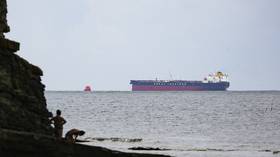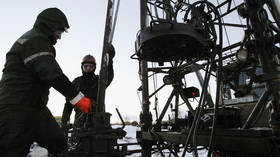Russia won’t supply oil to ‘price cap’ participants — head of Central Bank

Russia will stop supplying countries that cap the price of its oil, the nation's Central Bank head Elvira Nabiullina announced on Friday. Moscow has argued that a price ceiling would make oil more expensive and hurt Russian producers.
Nabiullina said that instead of complying with a price limit, Russia would redirect its supply to countries not imposing such a limit.
Her comments came a day after Russian Deputy Prime Minister Alexander Novak issued a similar warning, telling Russia’s Channel One that a price cap would drive revenue lower than the cost of production, and that Russia’s producers “simply will not work a negative profit.”
Seen by the US as a means of lowering global oil costs while simultaneously denying Russia revenue, the possibility of a price cap was agreed by the leaders of the G7 nations during their summit in June. Participating countries would deny shipping and insurance to Russian oil priced above a set rate.
The participation of only a small number of countries would have a global effect, as British and European companies currently insure 85-90% of seaborne Russian oil cargoes, according to figures from the Brookings Institution, a US think tank.
While no concrete price has yet been set, Japanese Prime Minister Fumio Kishida recently suggested that the upper threshold for a price cap would be set at around half the current market price for Russian oil.
Russia has warned that attempting to artificially cap oil prices would be counterproductive for the West. “There will be significantly less oil on the market, and its price will be much higher,” Security Council Deputy Chairman Dmitry Medvedev stated, predicting that the price cap, if it goes ahead, could drive the cost of a barrel of oil above $300-400.













